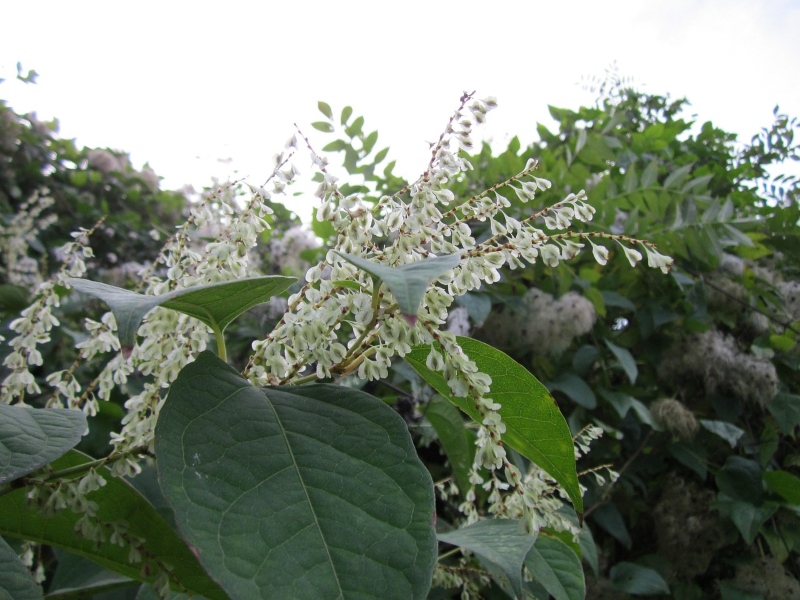
In September 2018, the Independent reported that Japanese knotweed had knocked nearly £20 billion off the value of the UK property market, with an estimated 850,000-900,000 properties affected nationwide.
Why does this particular weed pose such a big problem? Well, Japanese knotweed is exceedingly difficult to get rid of. Not just because the plant's rhizome root system can sometimes burrow a full 2 metres down into the ground, but also because a tiny fragment of those roots can sprout into a whole new stem.
This allows Japanese knotweed (once beloved by UK gardeners for its resemblance to bamboo) to spread to new sites at a truly alarming rate - ironically, many attempts to destroy the weed only end up helping it to take root elsewhere!
So, if you're sat around wondering how to get rid of Japanese knotweed, the professionals here at Total Weed Control are here to help!
We don't recommend trying to remove Japanese knotweed yourself.
Japanese knotweed is recognised by British authorities as a highly invasive non-native plant, and there are certain laws in place to keep it from spreading. For example, Japanese knotweed is classed as 'controlled waste', meaning that it can only be disposed of at specially licensed landfill sites.
As mentioned above, attempting to eradicate Japanese knotweed by yourself can backfire and make the problem even worse, so it's generally wise to call in a Japanese knotweed removal specialist to assess the situation and determine the best course of action.
How to Get Rid of Japanese Knotweed Permanently
Broadly speaking, there are two ways to get rid of Japanese knotweed:
- Herbicide - Spraying the plant's leaves with herbicide is generally the most cost-effective solution. Herbicide application should take place over several years to ensure the best possible results.
- Excavation & Disposal - The other option is to use excavation machinery to dig up the affected site, after which the knotweed can be disposed of at one of the aforementioned licensed landfill sites. This is by some distance the more expensive and disruptive approach of the two, but it may be preferable if you're on a deadline.
So, when it comes to getting rid of a knotweed infestation on or near your property, you have the two above choices. Whicher you decide to use will ultimately depend on your preference in terms of time and disruption.
How we can help get rid of your Japanese knotweed infestation
Here at Total Weed Control, we provide specialist Japanese knotweed removal across South Wales and South West England that ensure any confirmed case of knotweed on or around your home is dealt with in a professional and effective manner.
So, what are you waiting for!? To get rid of your Japanese knotweed, get in touch with our expert team today before it's too late!
Request a FREE Knotweed Survey >
